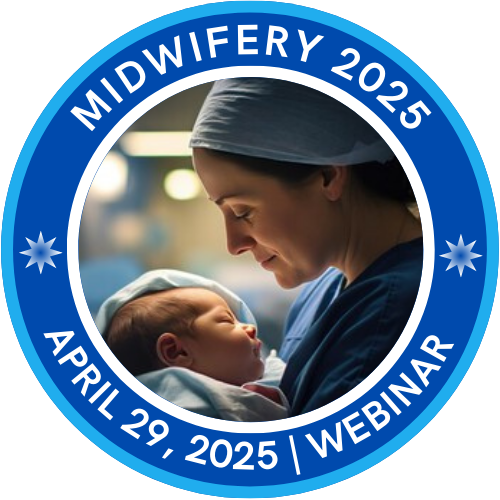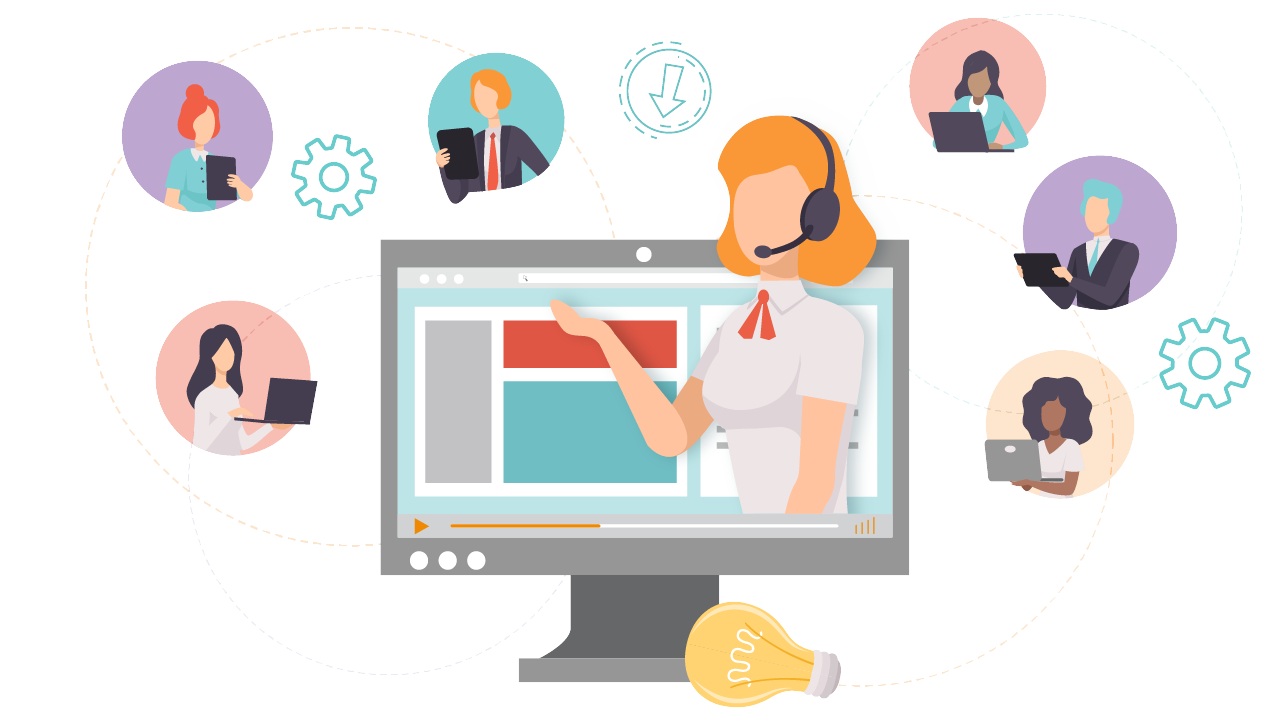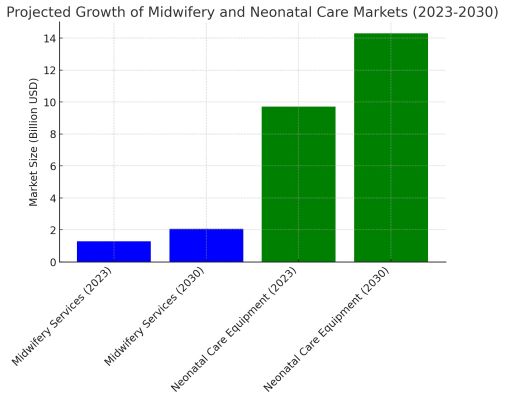Welcome to a Healthier Beginning for Mothers and Babies! We're thrilled to have you at our Midwifery and Neonatal Care Webinar on 29 April, 2025, where we explore the keys to safe deliveries, new-born well-being, and compassionate maternal care. Get ready for expert insights, practical strategies, and the latest breakthroughs in midwifery and neonatal health. Whether you're a professional in the field or simply looking to enhance your knowledge, this session is for you. Let's dive in and support every mother and baby with the best care possible!


A Midwifery and Neonatal Care Webinar is scheduled for 29 April, 2025, focusing on the importance of maternal and new-born health. This event will bring together midwives, healthcare professionals, and researchers to discuss the latest advancements in midwifery, neonatal care practices, and strategies for improving maternal and infant well-being. Key topics will include prenatal and postnatal care, breastfeeding support, early childhood development, and the management of common neonatal conditions. Attendees will gain insights into modern treatment approaches, best practices for safe deliveries, and the connection between maternal health and infant outcomes. The webinar will also feature live Q&A sessions, expert panel discussions, and interactive presentations to help participants stay informed about the latest developments in midwifery and neonatal care. Whether you are a healthcare professional, student, or an expectant parent, this webinar offers valuable knowledge and practical guidance to support maternal and new-born health.
Telemedicine and remote monitoring are revolutionizing midwifery and neonatal care by improving access, efficiency, and outcomes for mothers and new-borns. With advancements in digital health technology, midwives can now provide virtual consultations, real-time fetal monitoring, and postnatal care remotely, reducing the need for frequent hospital visits.
Artificial Intelligence (AI) is revolutionizing neonatology by enhancing early diagnosis, treatment, and monitoring of new-borns, particularly preterm and critically ill infants. AI-driven technologies, including machine learning, deep learning, and predictive analytics, are helping neonatologists improve neonatal care in several key areas.
Preterm birth prediction is an emerging field that leverages medical data, machine learning, and biomarker analysis to assess the risk of a baby being born before 37 weeks of gestation.
Wearable sensor technologies are increasingly transforming midwifery and neonatal care by providing continuous, real-time monitoring of vital signs, thereby enhancing early detection of complications and improving outcomes for mothers and newborns.
Genomic medicine is rapidly transforming midwifery and neonatal care by enabling more precise, personalized approaches to maternal and infant health.
Stem cell therapy is emerging as a revolutionary approach in midwifery and neonatal care, offering promising solutions for conditions affecting both mothers and new-borns. It involves the use of stem cells-primarily from umbilical cord blood, placenta, or amniotic fluid-to treat or prevent various medical conditions.
Addressing midwifery workforce challenges involves tackling issues such as workforce shortages, burnout, inadequate training opportunities, and unequal distribution of midwives in urban and rural areas. Strategies to overcome these challenges include increasing investments in midwifery education, improving working conditions, offering competitive salaries, and providing professional development opportunities. Additionally, strengthening policies that support midwives, promoting job satisfaction, and integrating midwifery services into broader healthcare systems can help build a more sustainable and resilient workforce.
Skin-to-skin contact (SSC) after a cesarean birth is gaining traction as a crucial practice for improving maternal-infant bonding, regulating new-born temperature, stabilizing blood sugar, and promoting breastfeeding success. Hospitals and birth centers are increasingly implementing policies to ensure immediate or early SSC in the operating room and recovery areas.
Cultural competence in midwifery is a trending topic as healthcare providers strive to offer inclusive, respectful, and patient-centered maternity care. It involves understanding and integrating diverse cultural beliefs, traditions, and values into midwifery practice to ensure equitable and positive birthing experiences for all individuals.
A high-risk pregnancy refers to a pregnancy in which the mother, baby, or both face an increased risk of complications before, during, or after birth. This classification can be due to pre-existing medical conditions, pregnancy-related issues, or external factors affecting maternal and fatal health.
Emergency Obstetric Care (EmOC) refers to the critical medical services provided to women experiencing life-threatening complications during pregnancy, childbirth, or the postpartum period. It includes interventions to address conditions such as severe bleeding (postpartum hemorrhage), obstructed labour, eclampsia, infections, and complications from unsafe abortions.
Neonatal resuscitation is a critical medical intervention used to support new-borns who experience difficulty breathing or have a low heart rate at birth. It involves a series of life-saving steps, including airway management, positive pressure ventilation (PPV), chest compressions, and, in some cases, medication administration.
Complications in pregnancy refer to health problems that arise during pregnancy, affecting either the mother, the baby, or both. These complications can range from mild to severe and may require medical attention to ensure a safe pregnancy and delivery.
Breastfeeding & Lactation Support refers to the guidance, encouragement, and expert assistance provided to new mothers to help them navigate their breastfeeding journey successfully.
Family planning and reproductive health are essential aspects of healthcare, ensuring individuals and couples have the knowledge, resources, and access to make informed decisions about their reproductive lives.

Our webinars are thoughtfully designed to deliver value to a wide range of individuals. Whether you're looking to grow your skills, explore new opportunities or gain insights from experts, here's who will benefit most from attending:

In a world where knowledge is power, webinars have emerged as one of the most accessible and impactful ways to learn, grow and connect. Don't miss the chance to learn, grow and connect in ways that truly matter.

Registering for a webinar is essential to gain access to the unique opportunities and secure a chance to grow, connect and gain insights that can drive your personal and professional success. Webinars are more than just online meetings, they're gateways to knowledge, innovation, and growth.

The midwifery and neonatal care markets are experiencing significant growth due to increasing awareness of maternal and infant health, technological advancements, and rising investments. The global midwifery services market, valued at approximately $1.29 billion in 2023, is projected to reach $2.06 billion by 2030, driven by a preference for personalized, holistic care options such as home births and birthing centers. Similarly, the neonatal care equipment market, estimated at $9.7 billion in 2023, is expected to grow to $14.3 billion by 2030, fueled by innovations like AI-integrated monitoring systems and advanced ventilators. Venture capital investments in maternal healthcare surged to $306.5 million in 2023, a 700% increase from 2018, with firms like Khosla Ventures backing technologies that improve outcomes such as lower preterm birth rates. Despite growth, challenges remain, particularly in reimbursement policies for services like doula care, which lack federal Medicaid coverage. Addressing these issues, alongside further technological advancements and increased healthcare investments, will be key to sustaining the expansion of midwifery and neonatal care services.